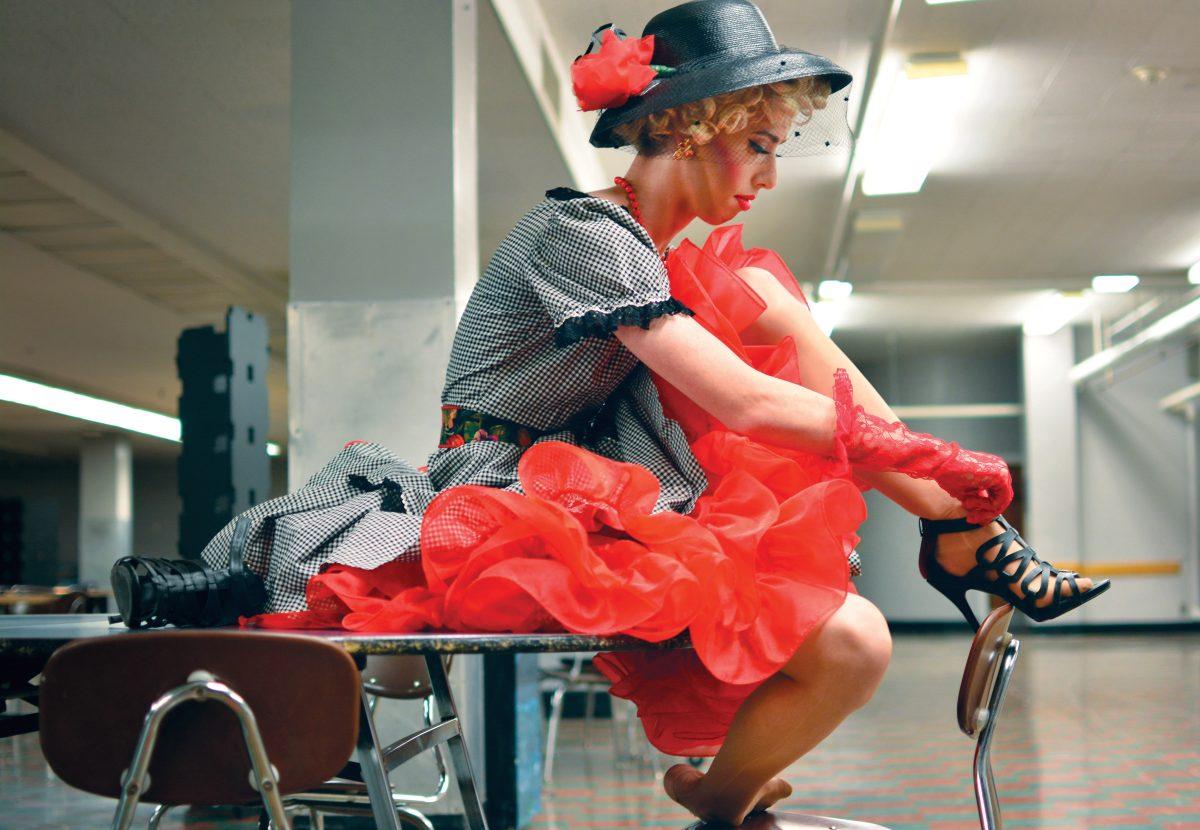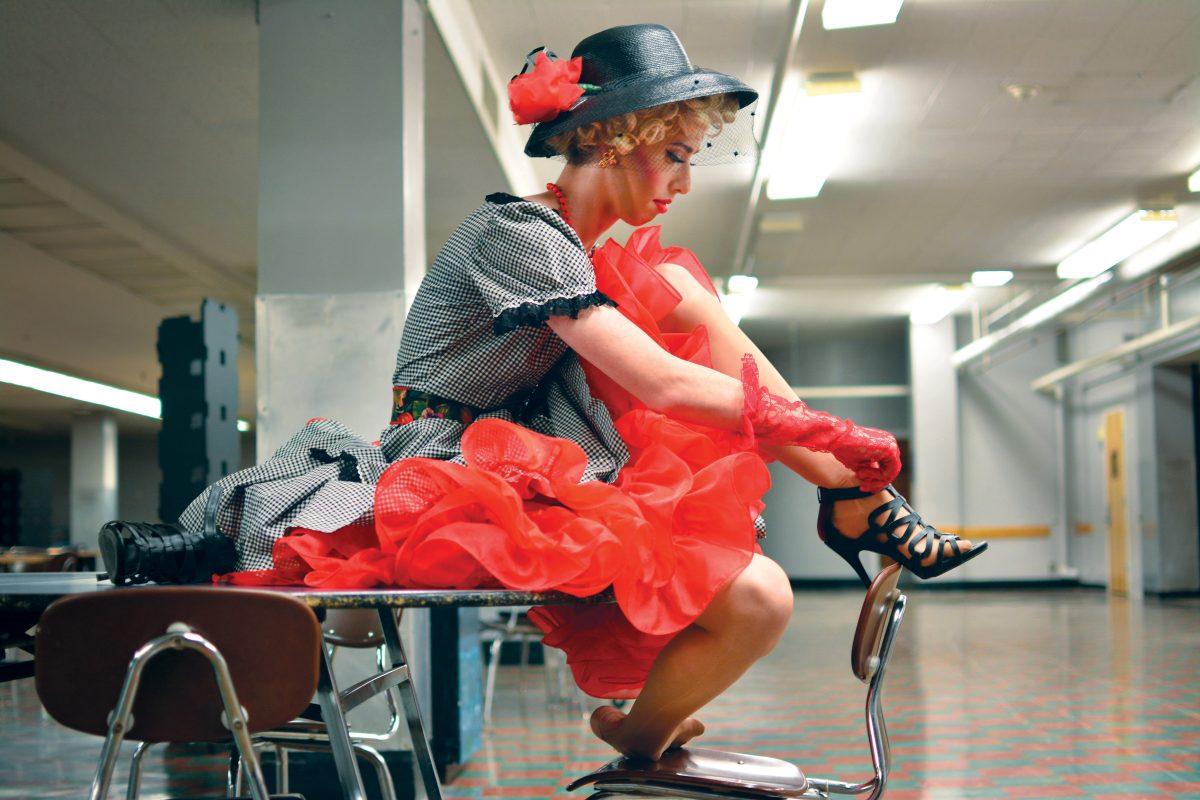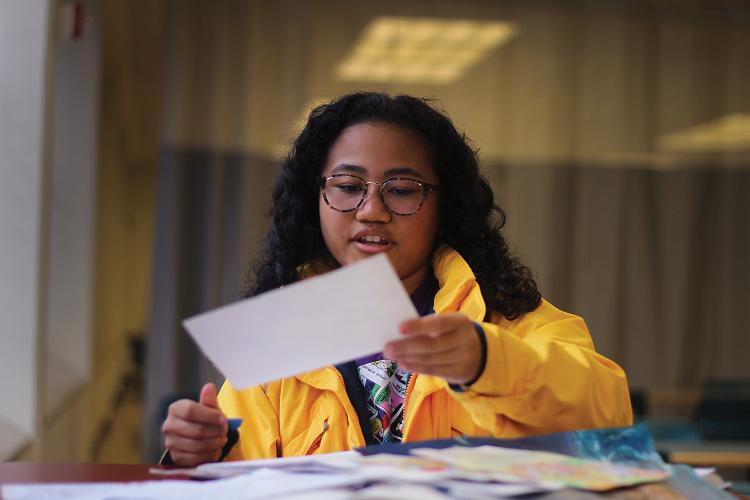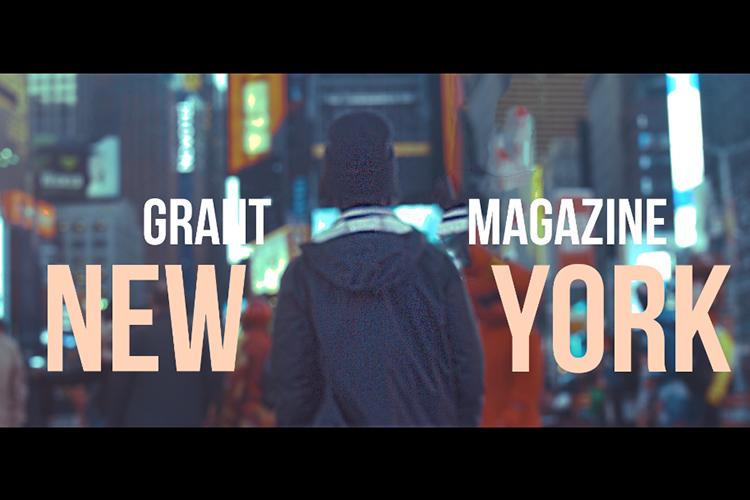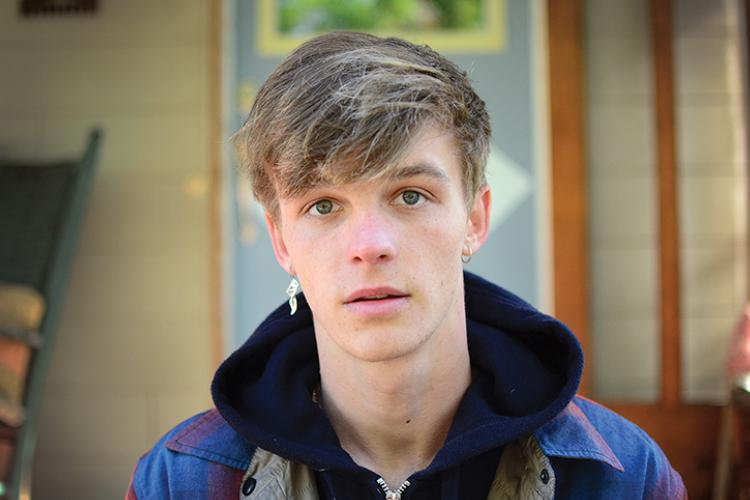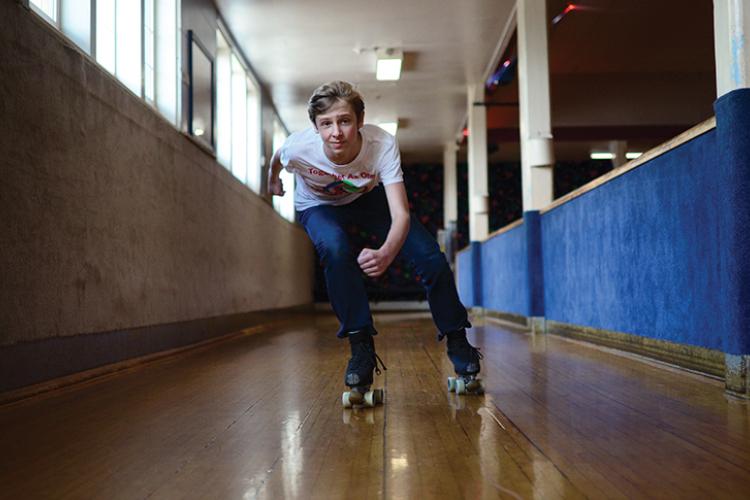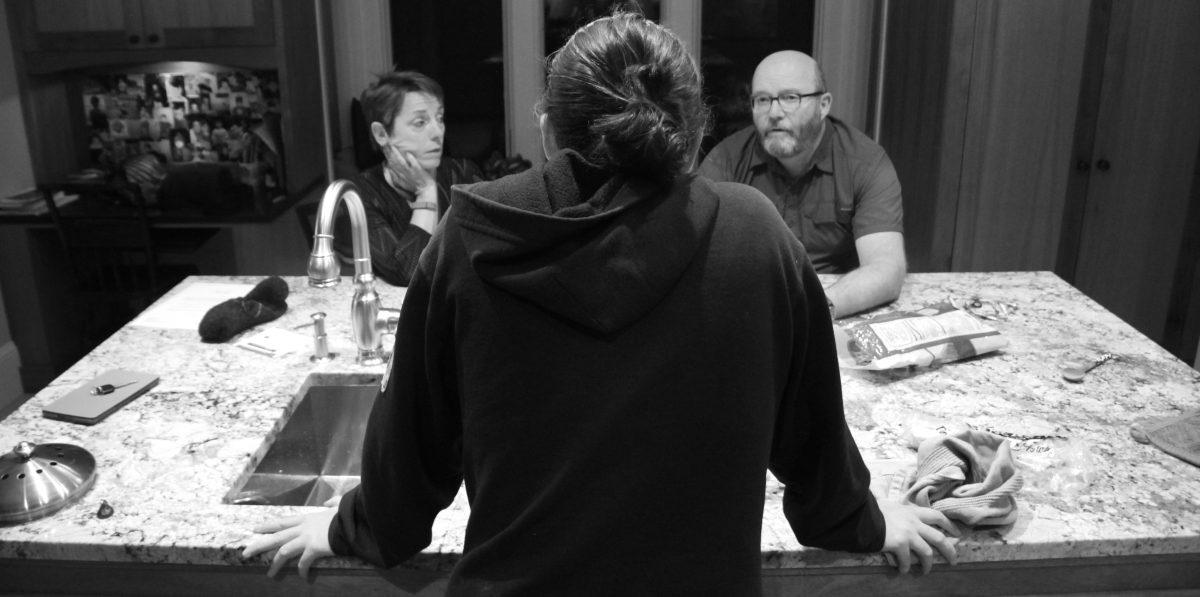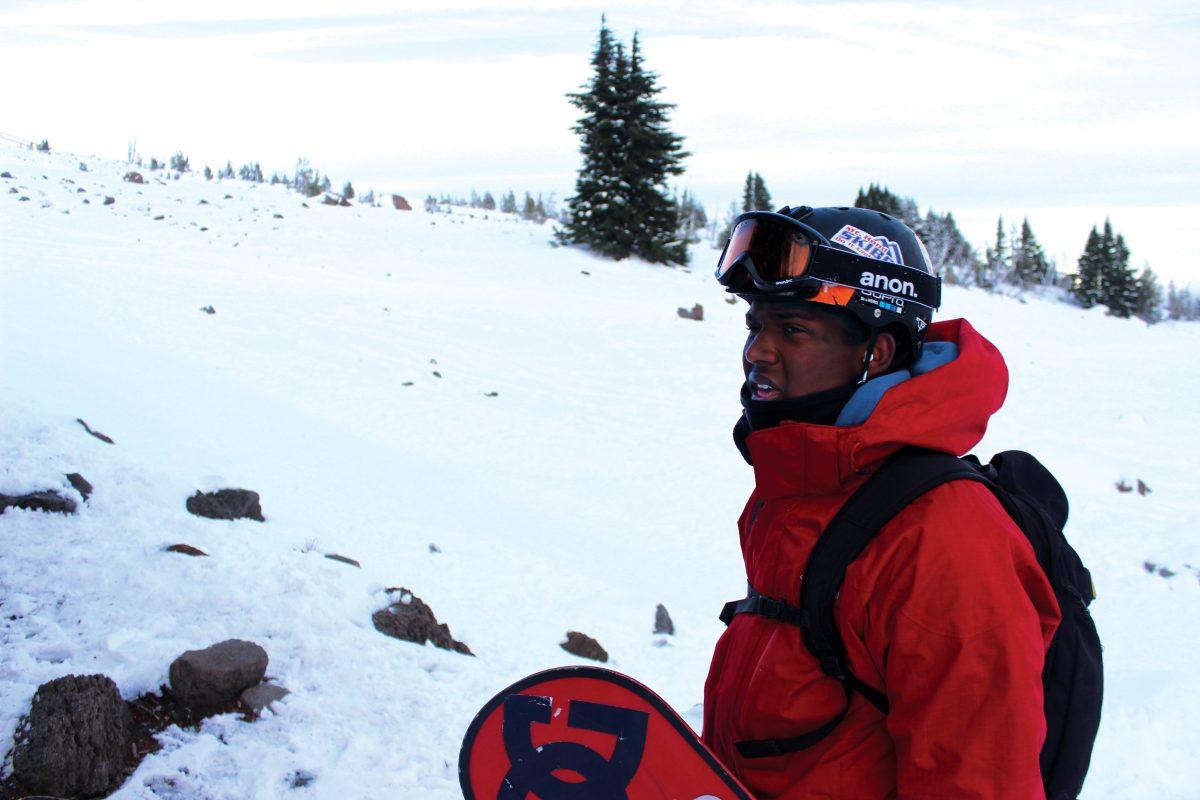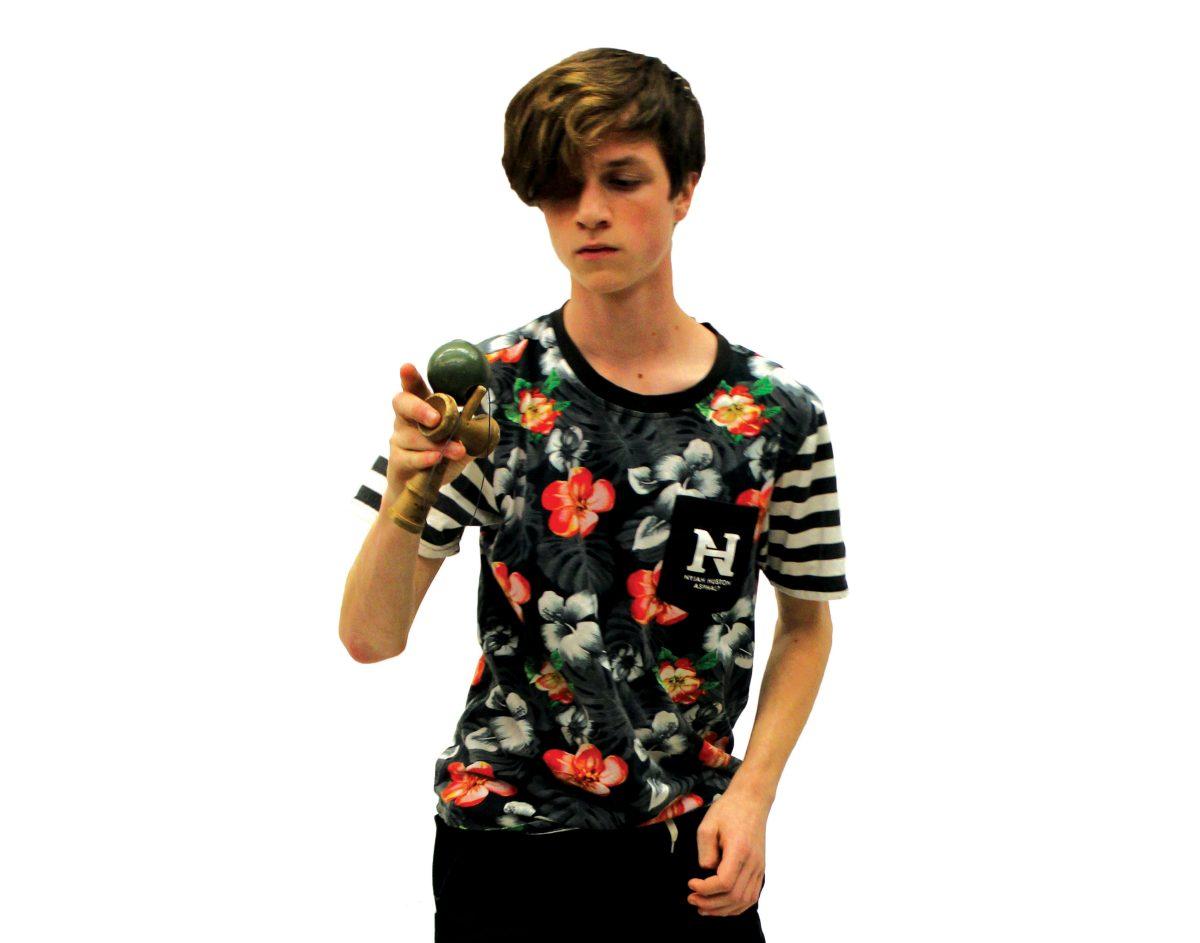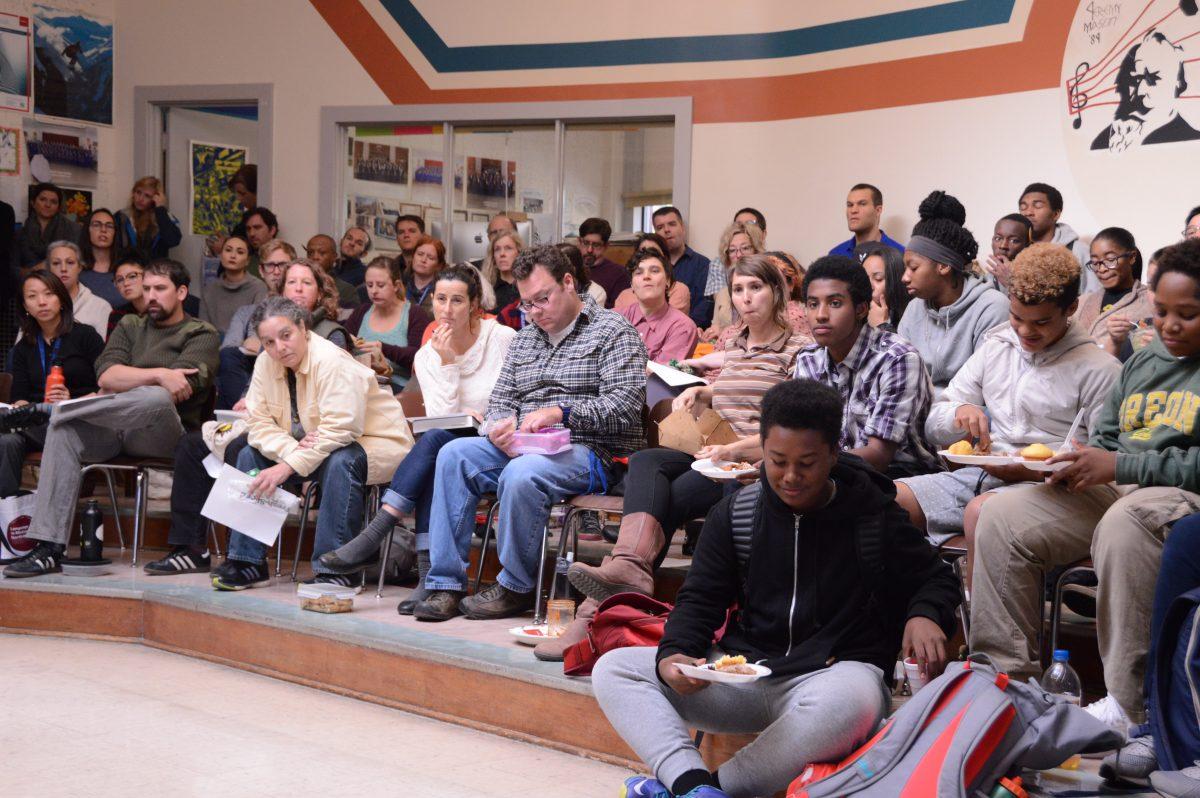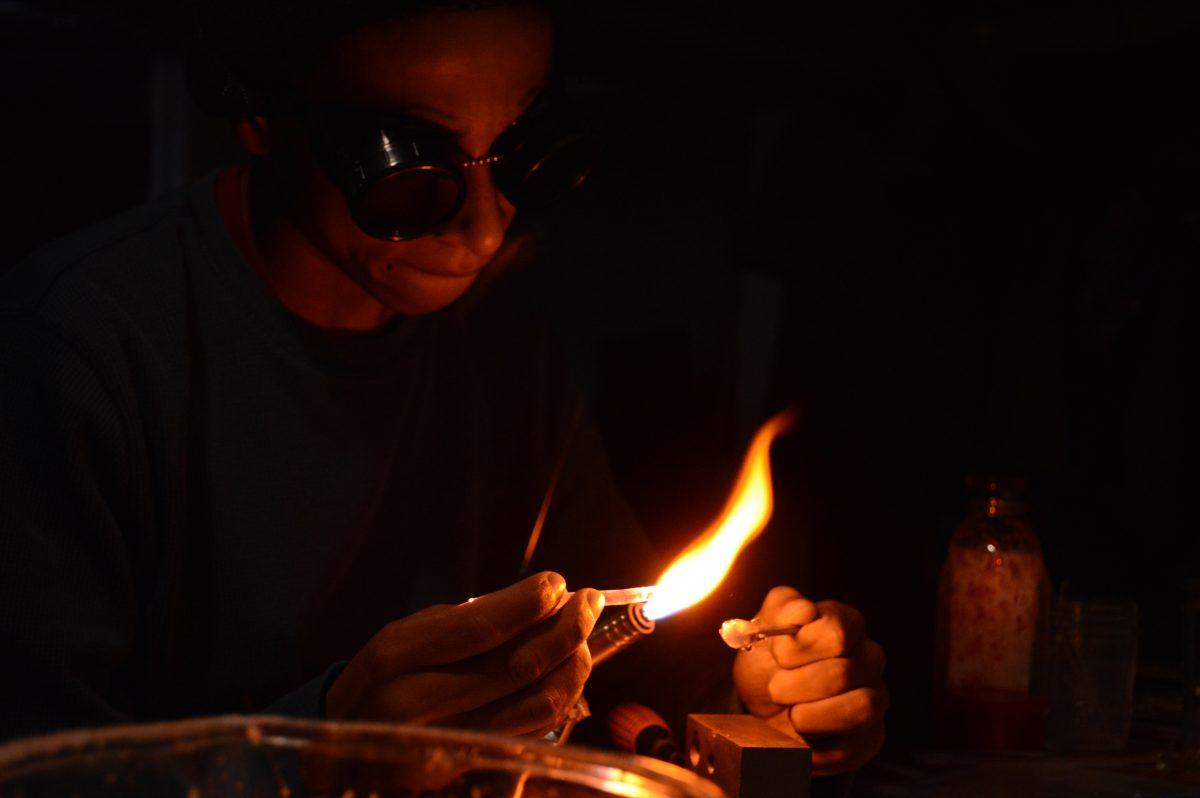Willem Winter steps into the harshly lit basement bathroom and heads straight for the cabinet. He sifts through brushes and bottles of makeup before grabbing foundation. He turns to the mirror and purses his lips as he works to blend the mixture onto his face.
For two hours, he meticulously applies bronzer, eyeliner, eyebrows, false lashes, lipstick and blush.
Winter, a Grant High School senior, heads into his room to change out of his everyday clothes. He walks out 10 minutes later in a completely different mood. Decked in a short, floral print dress and seven-inch hot pink heels that push his frame to 6-foot-9, he has to duck under the doorway before teetering up the stairs to show his mother the newest look of his drag persona, Mary Rich.
“You like?” he asks her proudly, before quickly disappearing back down the stairs, unfazed by her hesitation.
Winter, 17, has never been one to just follow the crowd. Growing up, he was no stranger to feeling isolated. But after undergoing multiple transformations in the past four years – first coming to terms with being gay and then coming out as a drag queen to his conservative parents – his sense of self has been tested more than ever before.
“I’ve always been very happy with who I am, but I didn’t really have a good idea of who that was,” he says now.
And although his parents are still in the process of accepting their son’s newfound identity, Winter feels like he’s finally found his niche in drag after a lifetime of not fitting in. “I don’t care what people think about it,” he says. “It’s what I love doing and their opinions don’t really matter.”
In a profession that has come a long way to gain acceptance and respect, Winter knows the road ahead won’t be a cakewalk. But he’s not going to let that stop him; he’s doing what he can to make it in the growing industry. “I’m taking dance lessons, voice lessons, I’m in theater, I’m in choir,” he says. “It’s all performance, it’s all good practice. It will all benefit me as a drag queen.”
• • •

Born and raised in Southeast Portland, Winter developed a love of performing arts at a young age. His mother, Jennelle Winter, remembers her son’s constant theatrics, recounting times when he would gather the family in the living room and put on small performances. Sometimes, he’d invite the neighborhood kids to join in and dress up. “A lot of moms would say, ‘OK, he’s going into theater,’” Jennelle Winter recalls.
They weren’t wrong.
Though Winter looked up to his older sisters Zoe and Mackenzie, who were both involved in performing arts in high school, he continued to pursue his passions on his own time. “I really don’t see a lot of my sister or myself in him, except for shared interests,” says Zoe Winter. “I think he always had his own way.”
As Winter grew older, the disconnect between him and his sisters seemed to close. “It always seemed like he was the one that brought the girls together,” says Jennelle Winter. “They both loved Will so much and they kind of shared that love for him…I think it brought the whole family closer. He was kind of like the connection.”
Outside the house, Winter struggled to find that same connection with his peers in elementary and middle school. Despite being a member of the Japanese Magnet Program at Mount Tabor Middle School, a tight-knit community where students can commit to studying the language for up to 13 years, Winter says he never felt the same kind of bond that many of his classmates shared. “People weren’t treating me badly,” he says, “I just…wasn’t similar to the other kids; I didn’t really get along with them.”
During eighth grade, Winter’s mother received news that she had landed a two-year job in Shanghai, China. Jennelle Winter wanted her kids to come, but Willem Winter was adamant about not going; it would mean that he would miss out on his first year of high school and the chance to develop new friendships.
He stayed behind, saying goodbye to his mother and older sister and hoping that freshman year would be the year he finally found his niche. It wasn’t. Winter struggled socially and developed even more confusion about where he fit in.
“Freshman year was hard for me because I didn’t really know what I was doing,” he says. “I was trying to create a good social life, which was something I really didn’t have before, and I was also trying to keep up with my homework situation, which I was getting absolutely nowhere with. I also didn’t really feel like I knew who I was as a person. Like, I felt like I didn’t really understand myself.”
Toward spring break of his freshman year, Winter visited his mother and sister in Shanghai and the offer for him to join them was made again. He worried about starting over at a new school in an unfamiliar place. ‘Will I make friends? Will I be able to keep up academically?’ he wondered.
But after some convincing from Zoe, who reassured her brother that it would be a good life experience, Winter decided to go. “At that point, I was just making excuses not to go,” he says now.
But his worst fears were quickly confirmed. He realized after missing out on the first full year of the international school’s two-year program, he fell behind and was having trouble adjusting to the change in culture.
“It’s not as kid-centered as American education,” Jennelle Winter says of the school in China. “There, it’s a little bit more lecture and, ‘This is what you have to learn,’ which made it hard for Will.”
Meshing with the social scene also didn’t prove any easier in China for Winter than it was in middle school. He noticed that there were two main social groups: sporty and academic. He didn’t fit into either.
But this would soon be the least of Winter’s worries.
In addition to adjusting to the rigor of his schoolwork, Winter was wrestling with questions about his sexuality that countered what he had been taught growing up.
At first, he thought that he might be bisexual. But as time went on, he realized he was gay. “The other kids at the school I was going to were absolutely not accepting of it,” he says. “That was kind of a scary thing, so I was closed off from all of them.”
“Drag is that thing that I’ve been looking for that’s like, ‘This is what I’m good at and this is something I can do.’” – Willem Winter
He also kept it secret from his mom.
Winter remembers watching the film, “The Adventures of Priscilla, Queen of the Desert,” a movie about drag queens. He was fascinated with the way the characters carried themselves and how a male actor could be made up to look like a gorgeous woman. This was Winter’s first real window into drag culture.
Before watching the film, Winter had always viewed drag queens to be feminine, just guys dressing up as girls. He still didn’t understand what it meant, but the more research he did, the more his interest grew.
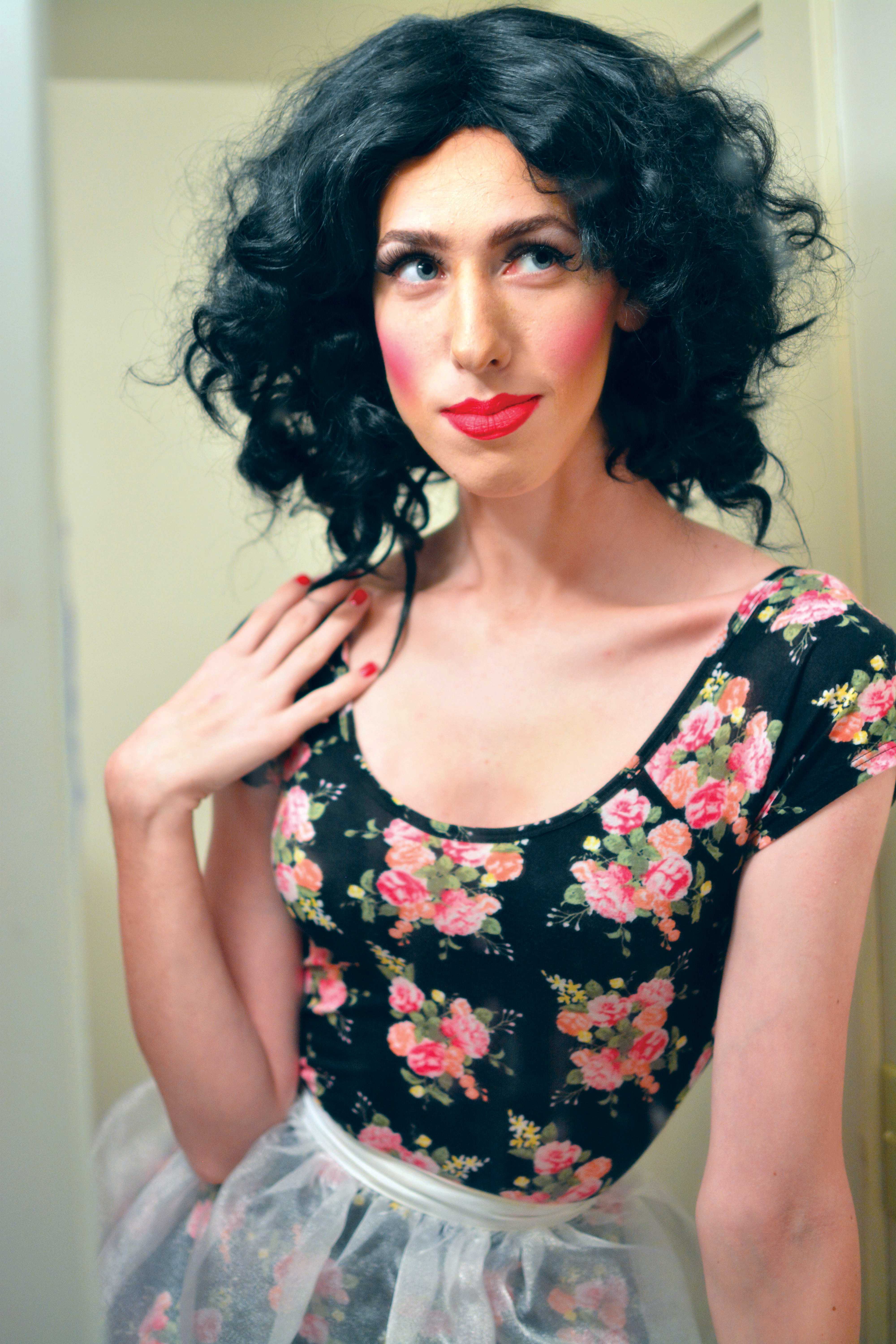
Yet the world of drag still seemed far outside of Winter’s reality at the time.
He returned home to Portland in 2014, but was still curious about drag culture. “China made me realize all of these things I wanted to do,” he says.
He became immersed in it. “It’s really just big and glamorous and it’s so much of a performance art,” he says. “I don’t think a lot of people get that and that’s really what I was obsessed with…how artistic it is…how much goes into it…it’s just so incredible.”
For the next six months, Winter filled his life with all things drag. He researched role models such as BenDeLaCreme and Dita Von Teese. He started watching the TV series, “RuPaul’s Drag Race.” “That’s how I started learning about things and the whole language,” he says.
He began experimenting with makeup. “I didn’t know a thing about it and had no idea how to do it,” he says now. “My sister helped me out the first couple of times.”
He practiced almost everyday, filling his YouTube queue with hundreds of makeup tutorials and fashion videos in hopes of finding the look that would best suit him. Slowly, he began to develop his own style, something he now describes as a cross between “a 1950s housewife and a moderately priced hooker.”
After a while, Winter felt he had to tell his parents. He sought advice from one of his sisters and decided to come out first as just gay to gauge their reactions.
“Originally coming out, I thought they were going to be OK with it,” he recalls. “Like, ‘Oh you’re gay. OK, whatever.’ But you know, it was a really big deal to them and it kind of made me realize that I shouldn’t have had those expectations, because that is what made it all seem so much worse.”
His parents’ reaction was a blow to Winter’s newfound confidence. But he didn’t want to stay in the shadows. He needed to restart and build up enough courage to tell his mother about his interest in drag.
One day, Winter decided he couldn’t hold it in any longer. “I was way too scared when I told her,” Winter says now. “I was pretty much shaking…It was like coming out for the second time.”
His mother remembers this moment. “When he first told us, it was really uncomfortable,” says Jennelle Winter, who had initially told her son that the one thing she did not want him to be was a drag queen. “But then I was like, ‘He is still the same kid. He’s still this loving, happy, smart, capable kid. He’s not defined by any career.’”
Though his parents are doing their best to be supportive of their son, their process of acceptance has been slow, and Winter says he still notices some discomfort between them.
“It’s something that’s very important to me and they’re just hoping it’ll blow over,” he explains. “I think they’re trying to be supportive, but it’s something that they very clearly don’t want for me.”
Even so, Winter is hopeful that his openness will help his parents come around as he works to integrate drag into his daily life.
In Grant’s recent production of William Shakespeare’s “As You Like It,” Winter performed in full drag as Audrey, a character whose simple mind and man-oriented goals are very similar to the qualities that Winter says define his drag persona.
“I’ve always been really into performing…and I feel like drag is a natural progression,” says Winter. “Theater isn’t really something I can see myself doing professionally but I feel like drag is that thing that I’ve been looking for that’s like, ‘This is what I’m good at and this is something I can do.’”
His mother remains apprehensive. “Our biggest concern is that he is safe,” she says. “We love him and we think he is wonderful and we want everybody to see that. But some people have a, you know, negative feeling about that kind of stuff.”
Winter isn’t worried. “When I finally did come out, it made me realize that I shouldn’t try to decide what other people think,” he says. “Their problems with it are not my problems. It is theirs to deal with. I’m doing fine on my own.”
• • •
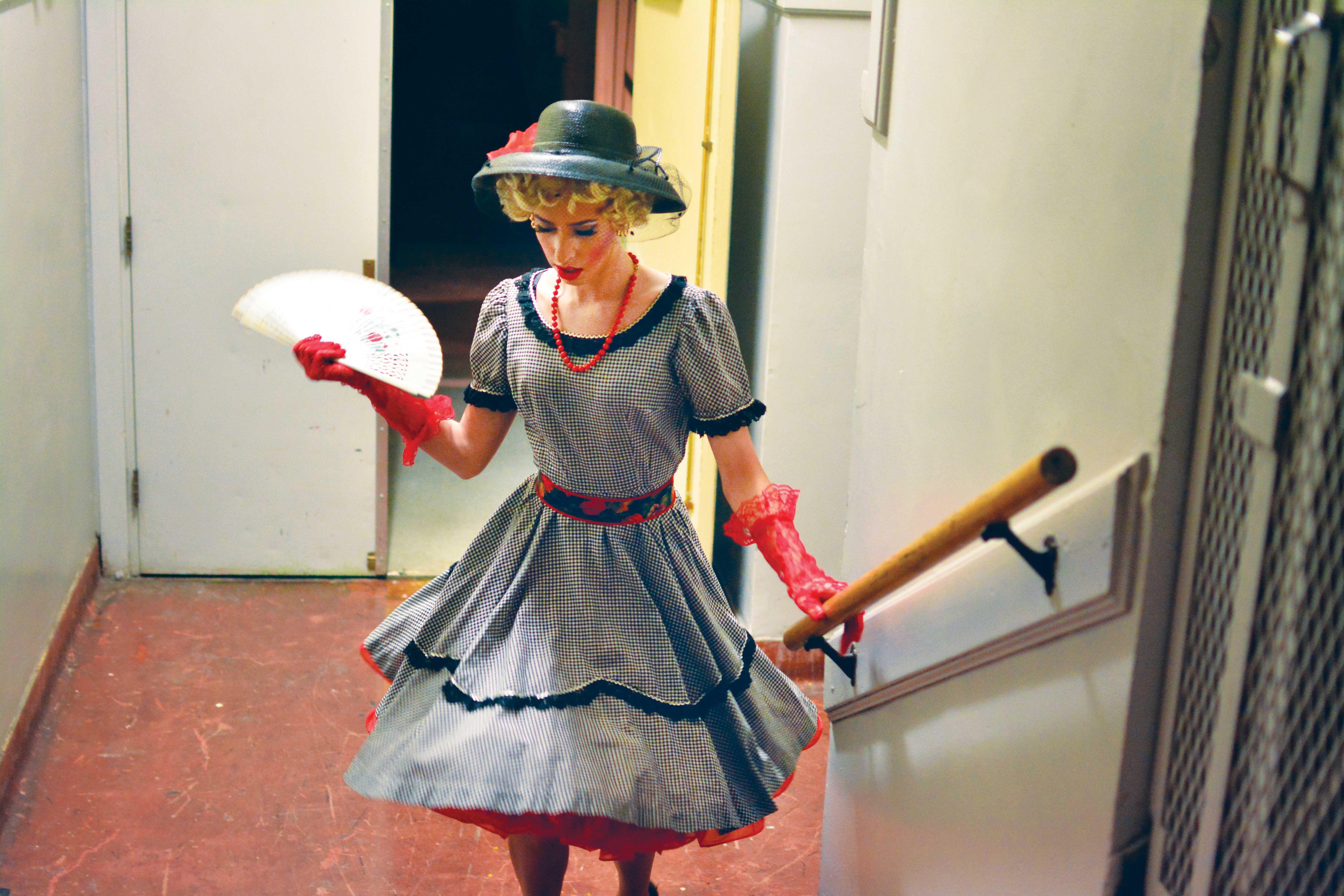
On a recent afternoon at Grant, Winter sits at a desk in his AP Government classroom. He’s quiet, taking in what’s going on in class, his knees tucked up to his chest.
Later that evening, he’s standing on Northwest Third Avenue in downtown Portland, just outside of Darcelle XV Showplace.
It’s a cold, crisp night, but it doesn’t seem to bother him. The door of the club opens and Poison Waters, a prominent drag queen in Portland, walks out sporting a long blue sequin dress, large gem earrings and perfect makeup. She walks to the curb, smiles, and introduces herself to a beaming Winter, whose ear-to-ear grin gives away his awe over meeting one of his biggest role models.
Poison Waters is a co-host at Darcelle XV – the world-renowned drag establishment set in Portland’s oldest cabaret showroom. She agreed to meet with Winter to give him advice for the future and share the story of how she worked her way up to her current status.
When asked about the process of coming out as a drag queen and entering the industry, Waters explained: “It’s important to listen to everyone when it comes to perfecting your craft and fostering your creativity…But it’s most important to listen to yourself, first and foremost. Follow your gut and stay true to yourself. Be proud of who you are and take pride in what you are doing.”
Because he is too young to professionally enter the drag industry, Winter is focusing on honing his skills and working to find a drag mother – an experienced drag queen who acts as a mentor. “It’s important because it’s such a difficult thing…and it’s hard to know where to start,” he says.
Teá Johnson, a close friend who was also in “As You Like It” play, occasionally accompanies Winter to an all-ages nightclub called “The Escape.” She enjoys watching her friend come alive onstage. “The thing with performing, especially in theatre,” she says, “is you’re being someone that you’re not…I think drag gives (Willem) the opportunity to somehow, like, simultaneously be someone he’s not, while being someone that he very much is.”
For Winter, playing Audrey in the Grant show was a step toward letting the world know who he is. But it was also a step toward self discovery. “It’s a thrilling feeling,” he says. “It’s not about being dressed up like a girl. It’s just about being fabulous and being larger than life and it’s really just a whole other world.” ◊





























